Virtual Event
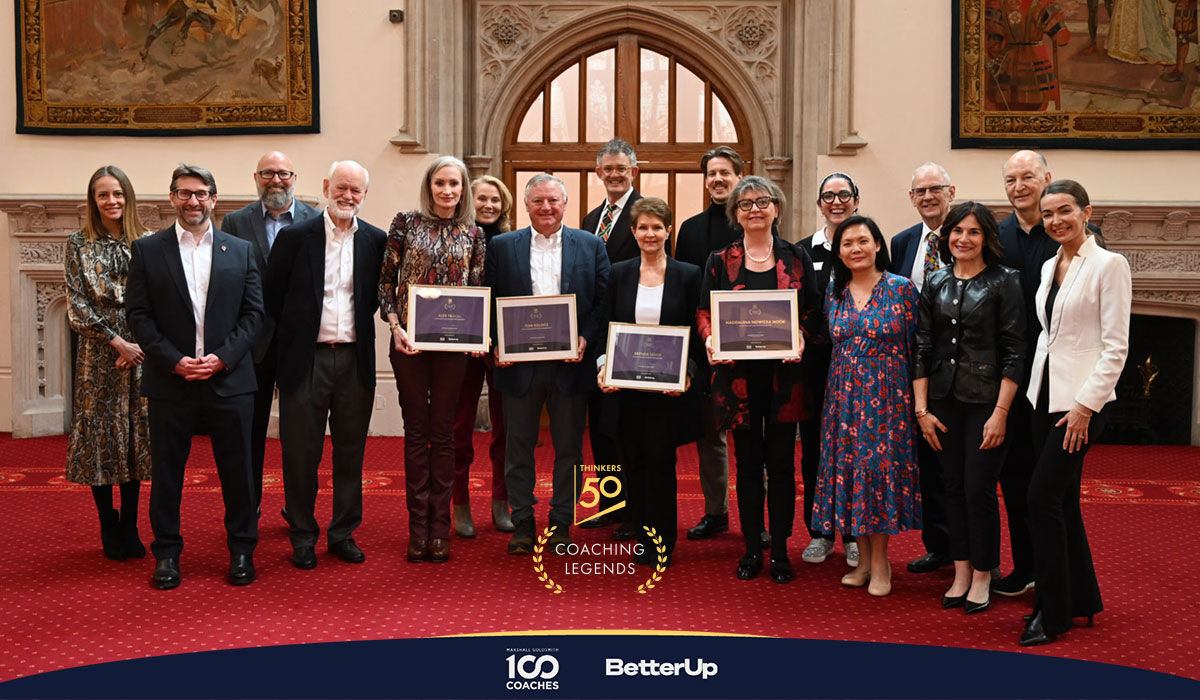
Disruption is the one constant in today’s environment, driven by geopolitics, technology, the increasing convergence of AI and growing interdependence. With more distractions on our time and attention than ever before, being future ready is now a fundamental necessity.
From an executive coaching perspective, future readiness is challenging coaches to reassess where they can make the most impact – for themselves and their clients. What should coaches double down on to differentiate themselves, and better serve the next generation of leaders and a GenZ workforce; and how are they reinventing themselves in an age of AI?
These were some of the themes explored during a recent roundtable brunch hosted by Thinkers50 Coaching Legends, ahead of the Thinkers50 London Summit 2025. The event also honoured Coaching Legends’ new inductees for 2025. Devised in partnership with 100 Coaches and BetterUp, Coaching Legends recognises those executive coaches who have made significant and lasting contributions to the field of coaching and management.
This year’s cohort of eight new inductees included Ram Charan, author and member of the Thinkers50 Hall of Fame, Magdalena Nowicka Mook, CEO and executive director of the International Coaching Federation and Jonathan Passmore of Henley Business School.
Modupe Taylor-Pearce, founder of BCA Leadership is also recognised, as is Brenda Bence, pioneer in the field of leadership personal branding, Tom Kolditz, founding director of the Doerr Institute for New Leaders at Rice University and Mike “Coach K” Krzyzewski, former head coach of Duke University men’s basketball team and professor at Duke Fuqua School of Business. Coaching Legends also honoured the legacy of Alex Pascal, founder and CEO of Coaching.com, who sadly passed away earlier this year.
With the Thinkers50 London Summit’s overarching theme focused on regeneration, it seemed fitting to consider how coaches are reinventing themselves and creating a culture of continuous learning and development. Participants at the roundtable were drawn from the world’s top coaches, and included some of the 2025 Coaching Legends inductees.
Roundtable host and moderator Sanyin Siang, founding executive director of Duke University’s Coach K Leadership & Ethics Center at Fuqua School of Business, challenged participants to consider what they need to upskill, what they can do better and what advice they would give those entering into the field of coaching.
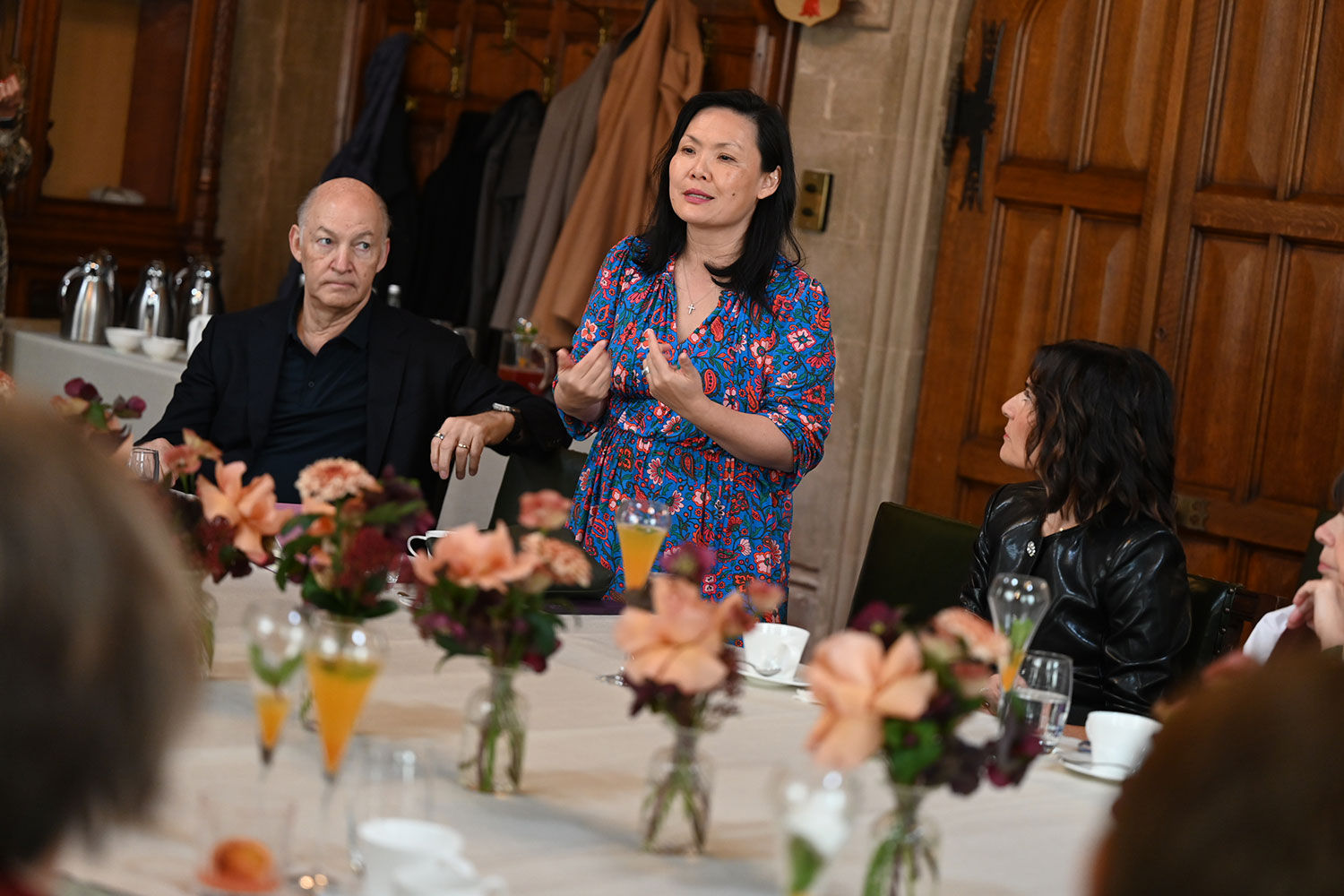
“The profession needs to be clearer around the expectations of being a coach and what that means – we have to up the game and the ante in terms of what we deliver,” said Charlotte Saulney, CEO of Coaching.com. “One thing we see emerging in our community is how we can better identify burnout.”
Metrics around coaching is a further challenge. As Brenda Bence outlined, coaching has become a popular title, but without proper training, certification and experience, its true impact can be lost. And when coaching is not done well, it risks undermining the very trust the profession is built on.
Tom Kolditz noted that while coaching continues to expand, there is very little measurement of effectiveness and few performance standards.
“Coaching is more difficult than people think, and measured standards are almost nonexistent,” he said.
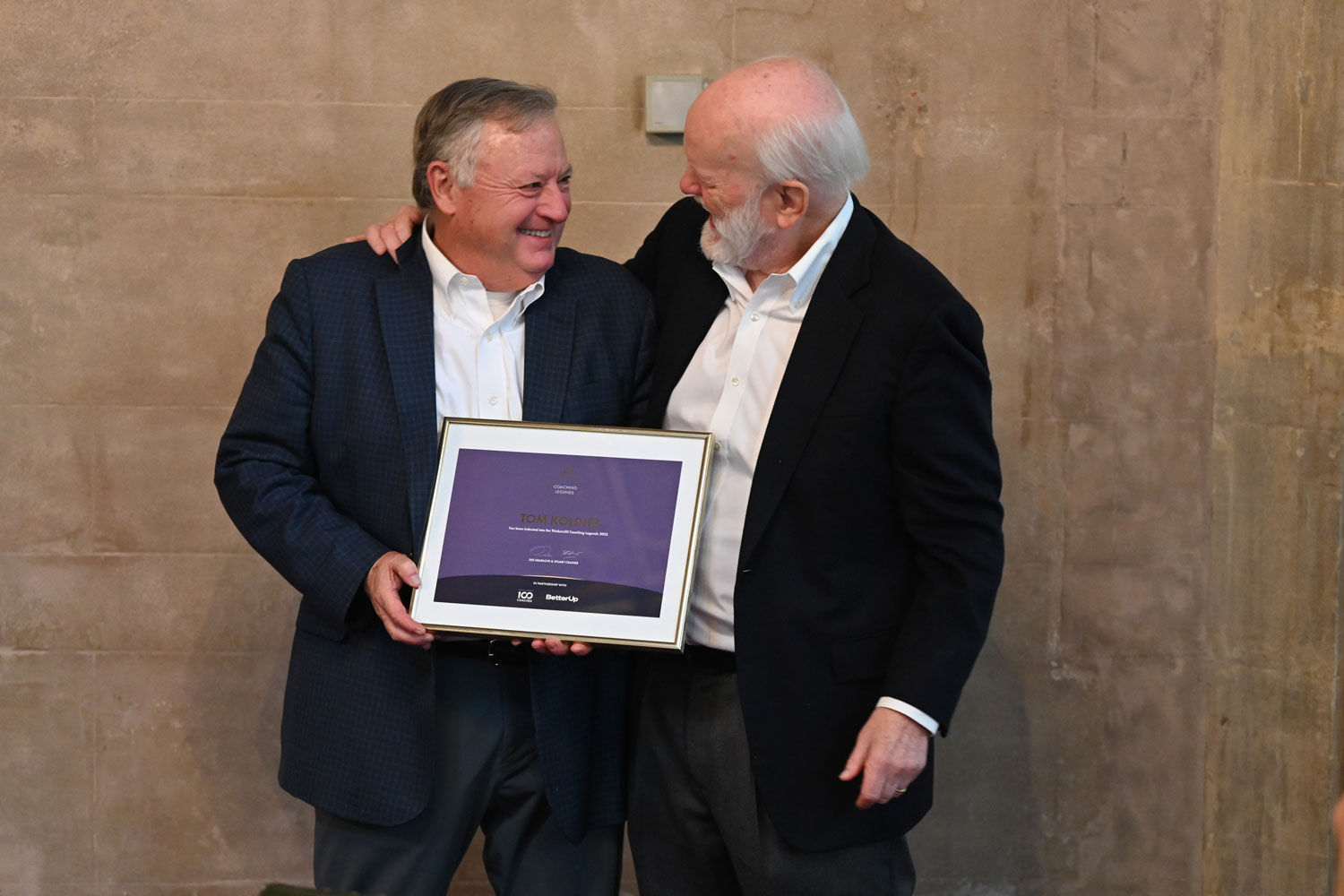
Saulney added: “The quality of coaching is something we’re committed to elevating; there are expectations and regulations around what it means to be a coach that is problematic – we need to get clearer on the expectations, make them more accountable.”
Coaching is also at a pivotal moment with regards to disruption from AI. Many conversations about the technology revolve around productivity, efficiency and automation. But, suggested the panel, what if this view was altered, to focus instead on how AI is changing human-to-human interactions, how it can influence customer perceptions and how it heightens trust in organisations.
“Many people fear that their jobs are being/will be replaced by AI,” said Scott Osman, founder and CEO of 100 Coaches Agency. “But the real truth is, you’re going to be replaced by a human being who knows how to use AI; on its own. AI does not do a lot.”
Great coaches and leaders, argues Osman, should be focusing on human artificial intelligence, the idea that artificial intelligence has a human interface in front of it. Those leaders who can upskill their leadership and focus more of their time on human interaction, can become better leaders and the same applies for coaches.
As Bence pointed out, all the elements that make us uniquely human are the best toolboxes coaches have to work with AI. Think emotional intelligence, gut instinct, the buzz we get from success, the anxiety when we hit a low; ultimately, it’s not about making AI better at being human, but about recognising how it can make us better at being human.
“We have to disrupt the one thing we can control: how we look, how we react, what we think, what we believe,” said Bence. “The greatest opportunity is using AI while staying grounded in what only humans can do. Coaching at its best depends on human capacities that no algorithm can replicate: self-awareness, contextual judgment, emotional connection / compassion, moral reasoning, original creativity, trust-building and relationships, curiosity and purposeful exploration, and the ability to live with uncertainty.”

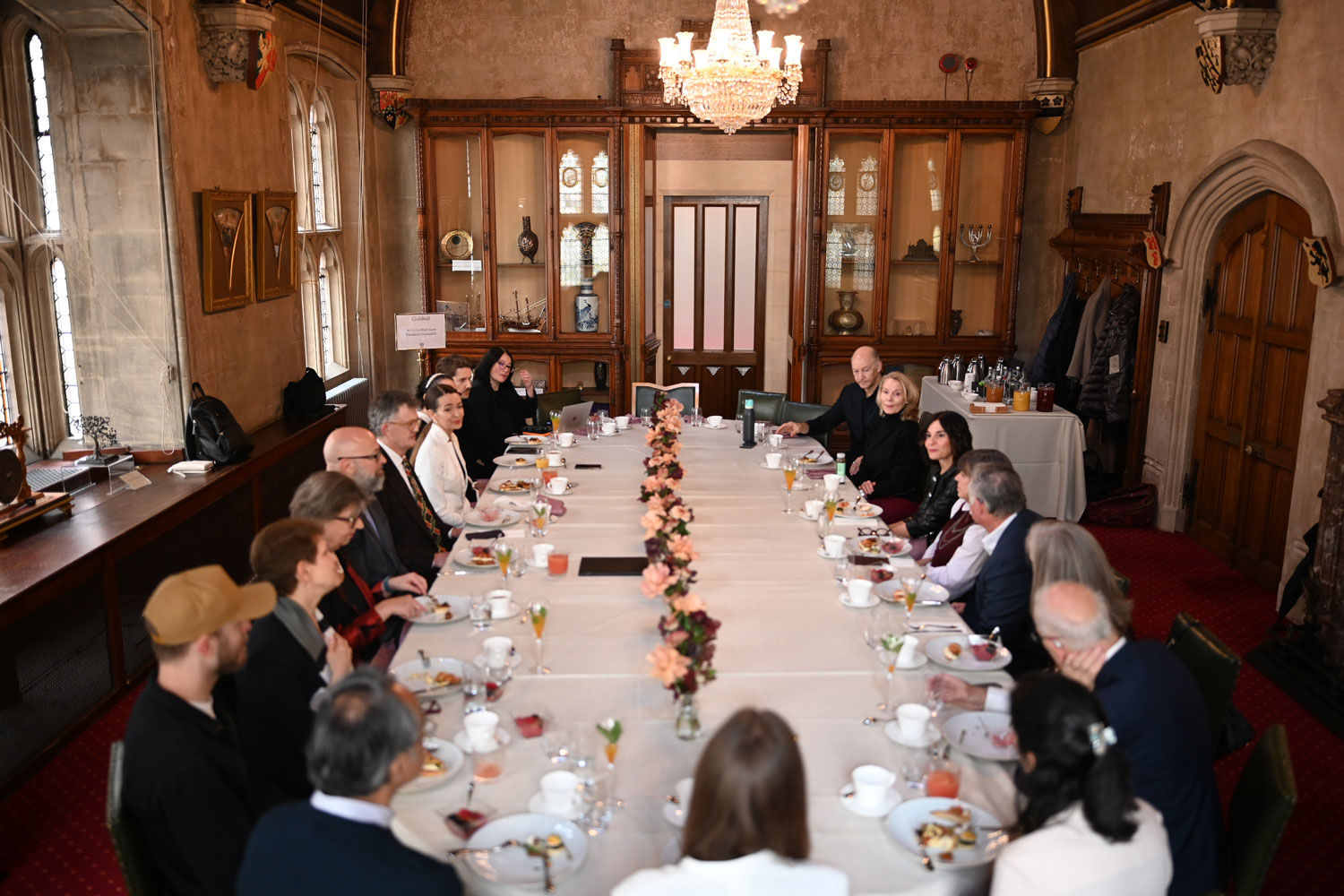
The panel also highlighted the importance of questioning. Good leadership has never been about having all the answers; rather it’s about asking the right questions. This same thinking applies to how the coaching industry can best leverage AI and inspire the next generation of leaders.
“Question asking is huge and when we think of the next generation, their authority figures have been Google and ChatGPT,” said Siang. “The type of questions they are asking are reductionist – as coaches, we have to teach them how to ask regenerative, provocative questions; only then can we get to know what problem we are trying to solve.”
And if there’s one thing that coaches do really well – and where the whole room was in agreement – it’s asking good questions.
“It’s not about us having the answers, but asking the questions and posing the right follow-up ones too,” said Ruth Gotian, chief learning officer and associate professor of education in anaesthesiology at Weill Cornell Medicine. “The coaching model is perfect for teaching people how to ask the right questions in order to leverage AI.”
As Magdalena Mook observed, AI can also be a useful tool when working with younger people, and could encourage them to be better coaches.
“It’s important to pay attention to how we can use AI to work with younger people as coaches; they are natives with technology,” she said. “This is what excites me most about the industry – seeing coaching becoming a career of choice for younger people, and being used in education and social progress organisations. AI is a wonderful and powerful enabler of coaching, helping to reach an even greater number of people.”
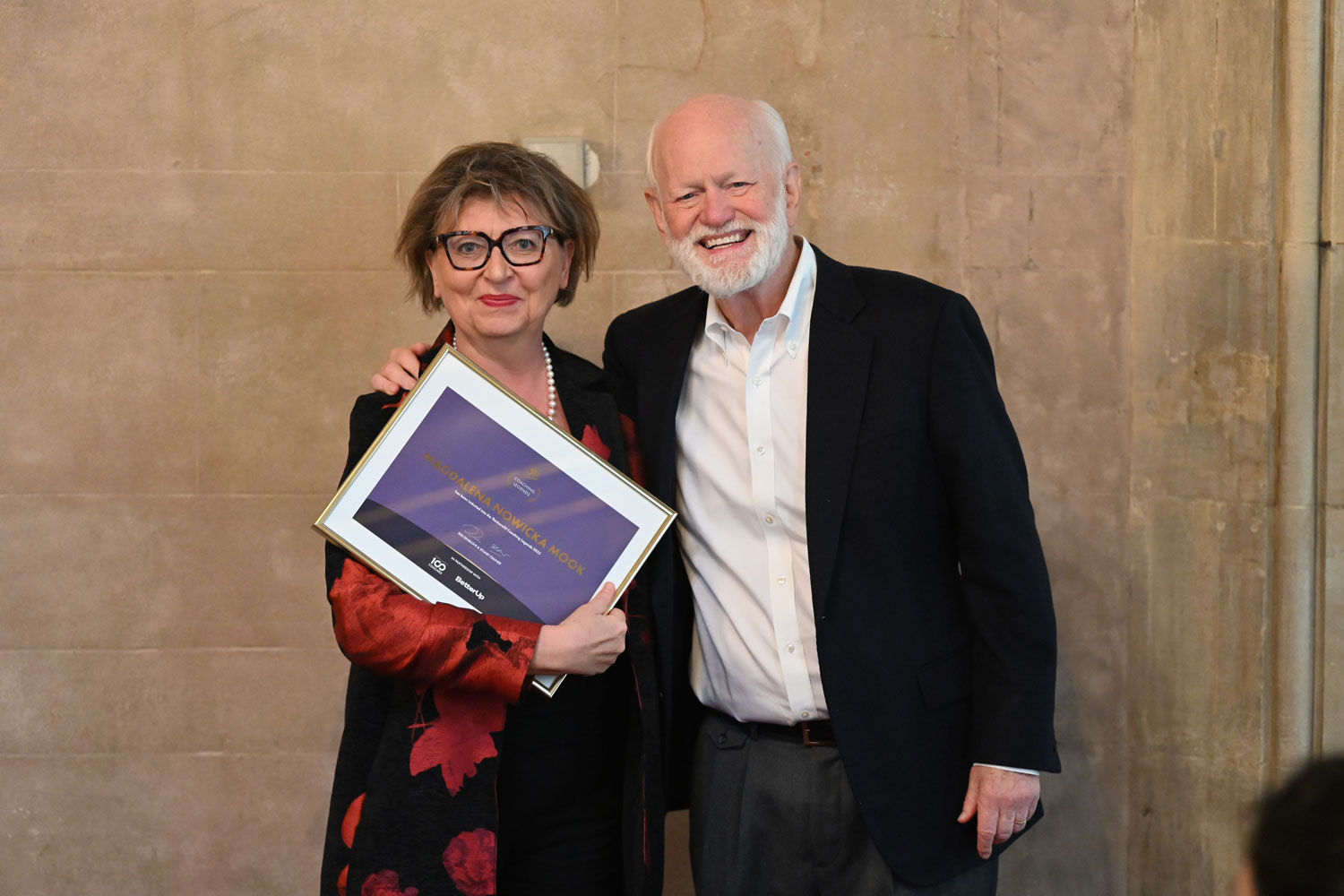
The panel also discussed another threat magnified by AI – namely how the technology is killing junior roles and entry-level jobs. These have traditionally provided essential training in the workplace and helped identify and shape the next generation of leaders.
“AI is leading to incredible labour cuts at junior level, creating huge leadership problems and contributing to a lost generation,” said Claire Diaz Ortiz, partner at 100 Coaches. “This begs the question: who will be the leaders of the future?”
Timing is everything too. As Dean Miles, founder and president of Bridgepoint Coaching & Strategy Group observed: “Looking at the oldest and younger leaders I coach, they’re trying to find a space between pausing and hesitating. With these new technologies coming in, new questions are being asked; is this a wise pause or did I just hesitate so long that we just lost the opportunity?”
The real value of quality coaching is also dependent on time. While the panel acknowledged how coaching can have a transformational effect on leaders in a short timeframe, the main impact tends to occur between seven to 15 years after the coaching process. In today’s VUCA world, patience – and patient coaching, really can be a virtue.
“Coaching is like learning how to play the guitar. You play it and do simple songs but 15 years later you’re better and strategically, you can see that in coaching,” said Kolditz.

Thinkers50 Limited
The Studio
Highfield Lane
Wargrave RG10 8PZ
United Kingdom

Thinkers50 Limited
The Studio
Highfield Lane
Wargrave RG10 8PZ
United Kingdom

Thinkers50 Limited
The Studio
Highfield Lane
Wargrave RG10 8PZ
United Kingdom
| Cookie | Duration | Description |
|---|---|---|
| LANG | 9 hours | Linkedin set this cookie to set user's preferred language. |
| nsid | session | This cookie is set by the provider PayPal to enable the PayPal payment service in the website. |
| sp_landing | 1 day | The sp_landing is set by Spotify to implement audio content from Spotify on the website and also registers information on user interaction related to the audio content. |
| sp_t | 1 year | The sp_t cookie is set by Spotify to implement audio content from Spotify on the website and also registers information on user interaction related to the audio content. |
| tsrce | 3 days | PayPal sets this cookie to enable the PayPal payment service in the website. |
| x-pp-s | session | PayPal sets this cookie to process payments on the site. |
| __cf_bm | 30 minutes | This cookie, set by Cloudflare, is used to support Cloudflare Bot Management. |
| Cookie | Duration | Description |
|---|---|---|
| l7_az | 30 minutes | This cookie is necessary for the PayPal login-function on the website. |
| Cookie | Duration | Description |
|---|---|---|
| CONSENT | 2 years | YouTube sets this cookie via embedded youtube-videos and registers anonymous statistical data. |
| _ga | 2 years | The _ga cookie, installed by Google Analytics, calculates visitor, session and campaign data and also keeps track of site usage for the site's analytics report. The cookie stores information anonymously and assigns a randomly generated number to recognize unique visitors. |
| _gat_gtag_UA_10408481_1 | 1 minute | Set by Google to distinguish users. |
| _ga_ZP8HQ8RZXS | 2 years | This cookie is installed by Google Analytics. |
| _gid | 1 day | Installed by Google Analytics, _gid cookie stores information on how visitors use a website, while also creating an analytics report of the website's performance. Some of the data that are collected include the number of visitors, their source, and the pages they visit anonymously. |
| Cookie | Duration | Description |
|---|---|---|
| NID | 6 months | NID cookie, set by Google, is used for advertising purposes; to limit the number of times the user sees an ad, to mute unwanted ads, and to measure the effectiveness of ads. |
| test_cookie | 15 minutes | The test_cookie is set by doubleclick.net and is used to determine if the user's browser supports cookies. |
| VISITOR_INFO1_LIVE | 5 months 27 days | A cookie set by YouTube to measure bandwidth that determines whether the user gets the new or old player interface. |
| YSC | session | YSC cookie is set by Youtube and is used to track the views of embedded videos on Youtube pages. |
| yt-remote-connected-devices | never | YouTube sets this cookie to store the video preferences of the user using embedded YouTube video. |
| yt-remote-device-id | never | YouTube sets this cookie to store the video preferences of the user using embedded YouTube video. |
| yt.innertube::nextId | never | This cookie, set by YouTube, registers a unique ID to store data on what videos from YouTube the user has seen. |
| yt.innertube::requests | never | This cookie, set by YouTube, registers a unique ID to store data on what videos from YouTube the user has seen. |
| Cookie | Duration | Description |
|---|---|---|
| DEVICE_INFO | 5 months 27 days | No description |
| loglevel | never | No description available. |
| m | 2 years | No description available. |
Thinkers50 Limited has updated its Privacy Policy on 28 March 2024 with several amendments and additions to the previous version, to fully incorporate to the text information required by current applicable date protection regulation. Processing of the personal data of Thinkers50’s customers, potential customers and other stakeholders has not been changed essentially, but the texts have been clarified and amended to give more detailed information of the processing activities.